UK-US special relationship: A short history
- Published
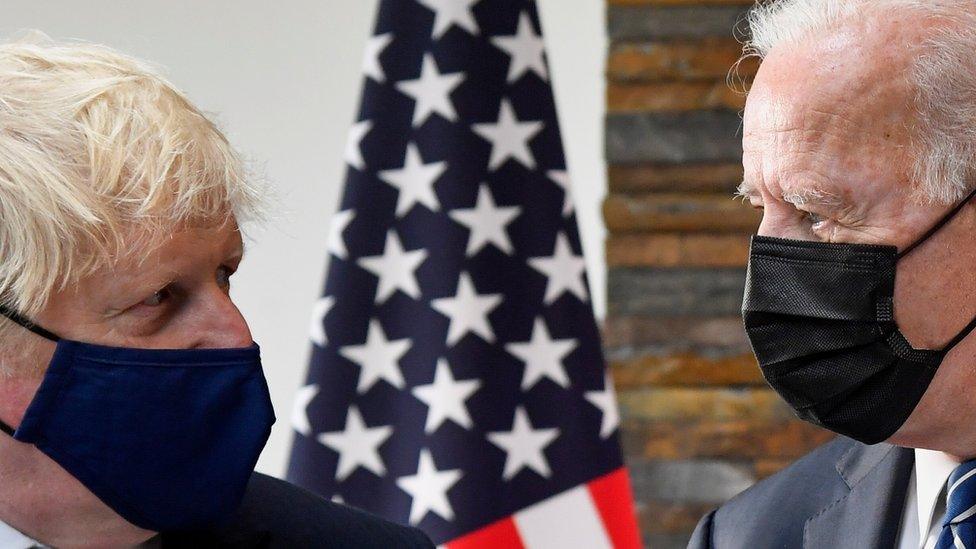
Mask face on
If global diplomacy happened in a school playground, America might be the cool kid. Or maybe the kid who's always got new trainers.
Almost everyone wants to be friends with the US. And the UK has that very "special relationship" to maintain.
But that's hard to do when the key players change all the time.
US President Joe Biden and UK Prime Minister Boris Johnson met earlier in the summer, in Cornwall for the G7 summit.
They seemed to get along then during their week on the seaside.
Now, they're on the president's patch - with Boris Johnson visiting the White House. And there are some tricky talking points on the agenda.
In order to keep the spark alive they may want to take a look back at which pairings actually had that "special" something, starting in 1946 when Winston Churchill first came up with the phrase.
The then British prime minister used the words in a speech just after Britain and its allies - including the US - had beaten Nazi Germany in World War Two.
Churchill and the president at the time, Harry Truman, clearly felt pretty "special" about each other back then.
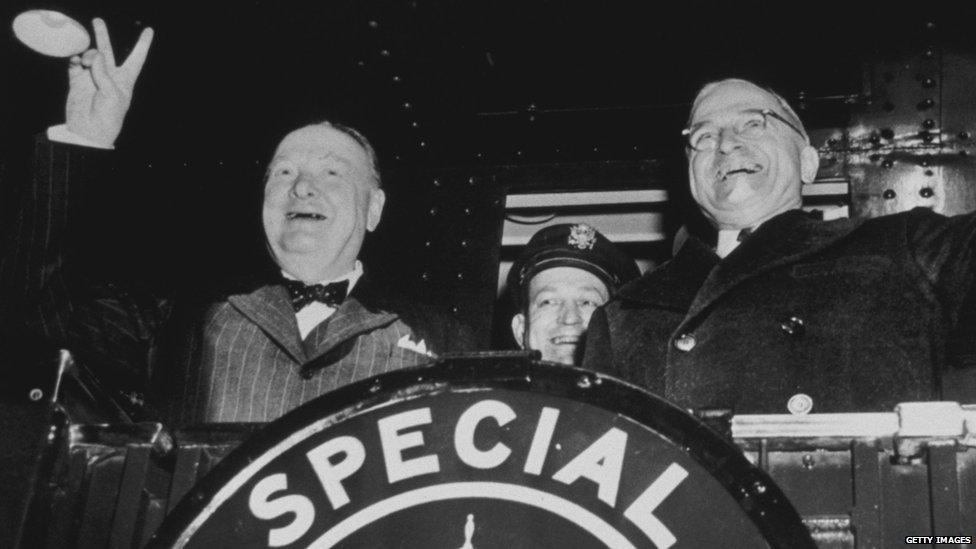
Spelling it out - S P E C I A L
But like any relationship, there have been ups and downs.
The 1980s were particularly warm. Margaret Thatcher called Ronald Reagan "the second most important man in my life" after her husband.
The president's chief of staff said the pair "had each other's backs" and that their relationship was "a love affair in the right sense of the word".
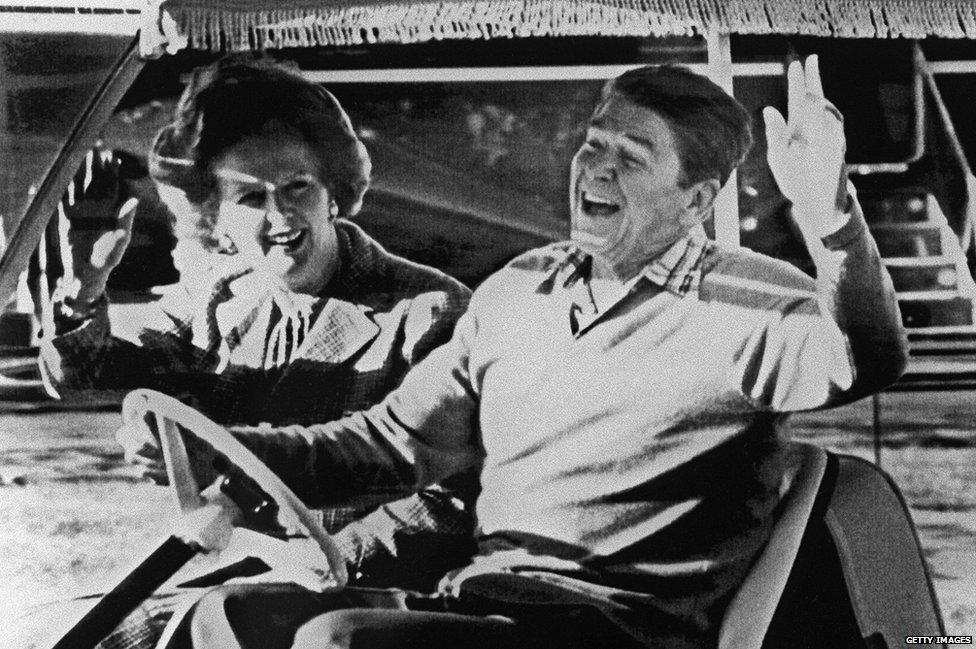
100% her type on paper
In the 1990s Tony Blair and George W Bush bonded early on because they liked the same brand of toothpaste. Seriously.
After 9/11 in 2001 things really ramped up.
The president told reporters: "We've got no better friend in the world than Great Britain.
"We've got no better person that I like to talk to than Tony Blair."
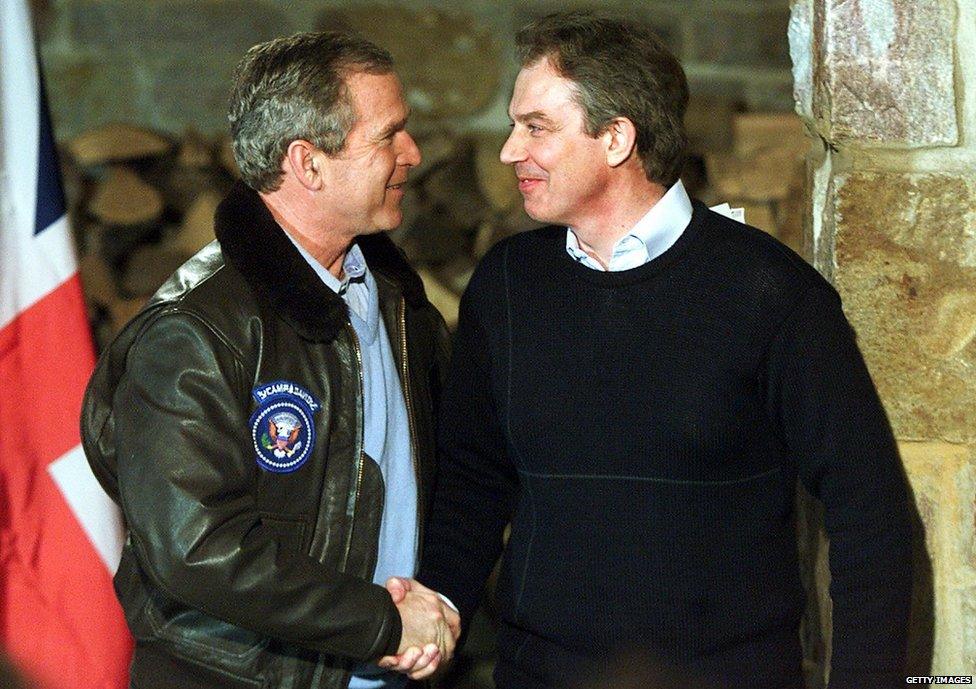
Look into my eyes. Not around the eyes. Into my eyes
Blair fully backed Bush and his unpopular war in Iraq.
They were so close the British PM became known as the president's "poodle".
Butting heads
But after that, Barack Obama and David Cameron's relationship was a little more complicated.
In Obama's memoir he said he did like Cameron "personally" but the two "butted heads" on a range of international issues.
And he once talked about having the "perfect relationship" with another world leader, Australia's former PM Kevin Rudd. Awkward.
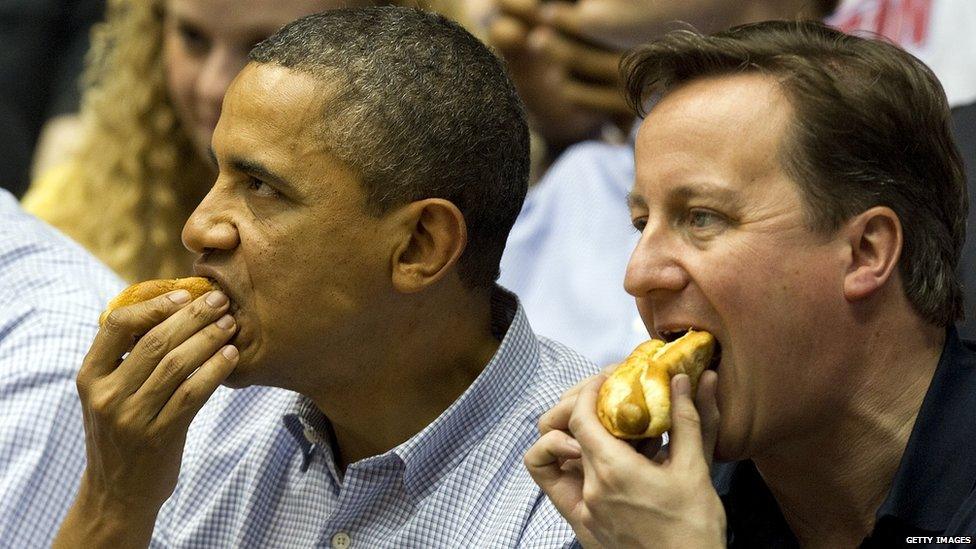
Totally natural photo of two buddies at a ball game
That leads us on to Donald Trump and Theresa May.
Despite the pair holding hands on a visit to the White House, the relationship wasn't an easy one.
In an article the former UK prime minister wrote for the Daily Mail, she said: "With Donald Trump, I never knew what to expect."
He was a big fan of Brexit and publicly criticised her approach to getting the deal done with the EU, saying she didn't listen to his advice.
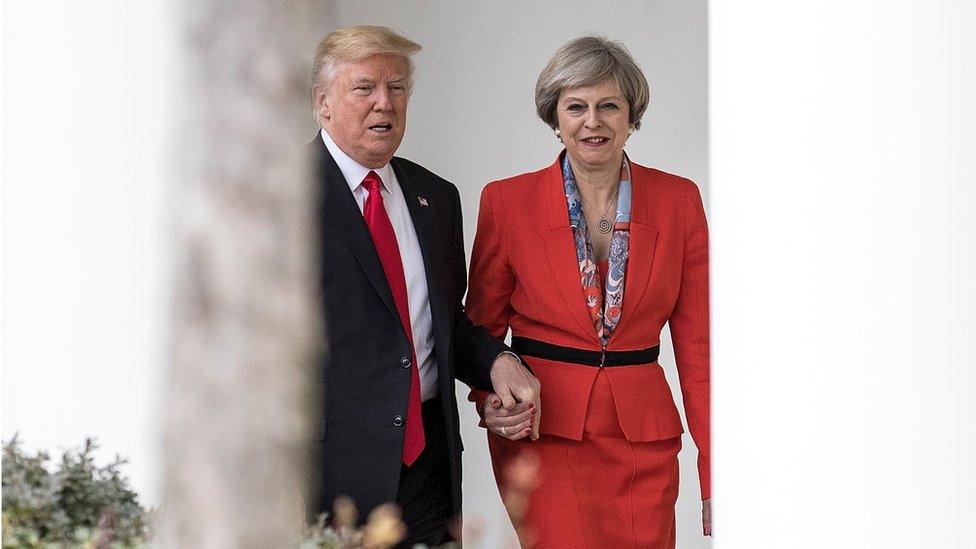
Not awkward at all
But perhaps the problem was that the president already had eyes for someone else - Boris Johnson.
'Britain Trump'
"I think we'll have a very good relationship," Trump said when Johnson became prime minister.
There were many similarities between the two of them. So much so that Donald Trump told his supporters at a rally in the US: "They call him Britain Trump."
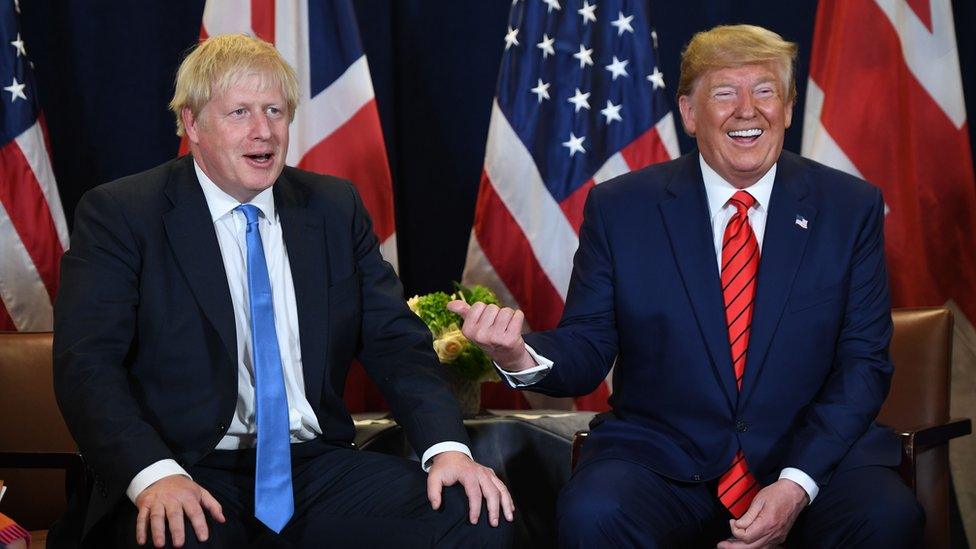
Best friends for life... well, for a bit anyway
But Johnson was quick to distance himself once Trump was voted out, speedily congratulating Joe Biden on his victory.
On paper though, Boris Johnson still has a lot more in common with the previous US president than the current one.
Unlike Trump, Biden was against Brexit. He is of Irish descent so has big concerns about how it will affect Northern Ireland and Ireland.
However they were keen to emphasise their common ground to the media while at the G7 summit in Cornwall in June.
"There's so much that they want to do together with us, from security, NATO, to climate change," Boris Johnson said at the time.
But there are new talking points now, with differences over a trade deal and the situation in Afghanistan to discuss.
Plus - despite what he said a few months ago - Boris Johnson now wants the US to do more on climate change.
But whatever happens behind the scenes, expect both men to stay cordial in front of the cameras.
No leader wants to be known as the one who ended the special relationship.


Follow Newsbeat on Instagram, external, Facebook, external, Twitter, external and YouTube, external.
Listen to Newsbeat live at 12:45 and 17:45 weekdays - or listen back here.
- Published21 September 2021
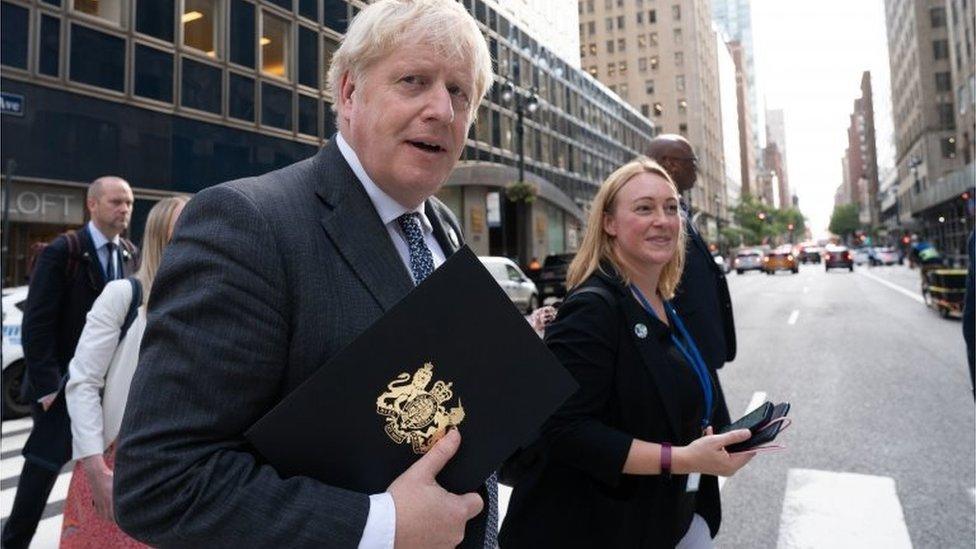
- Published21 September 2021
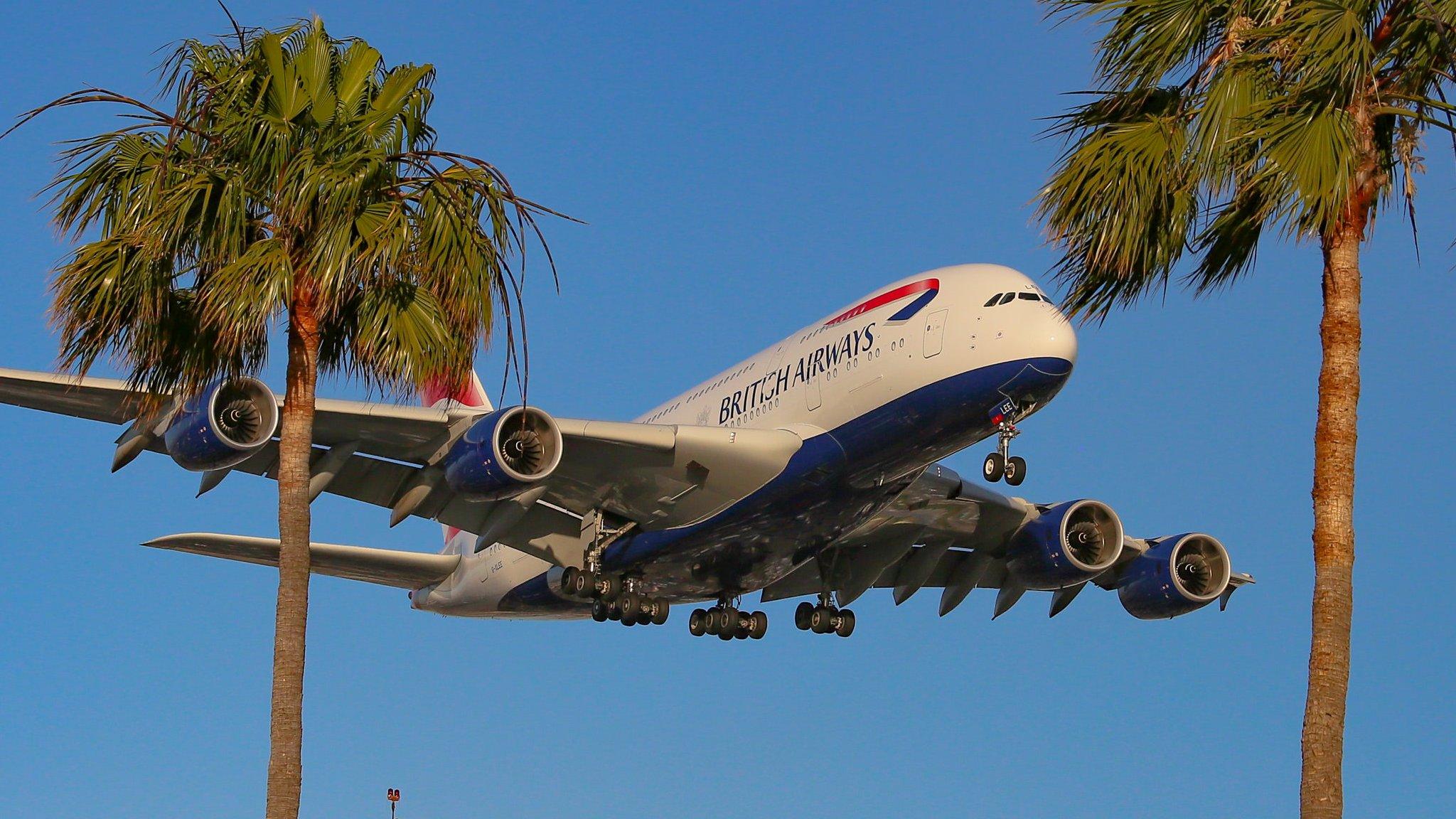
- Published21 September 2021
- Published11 June 2021
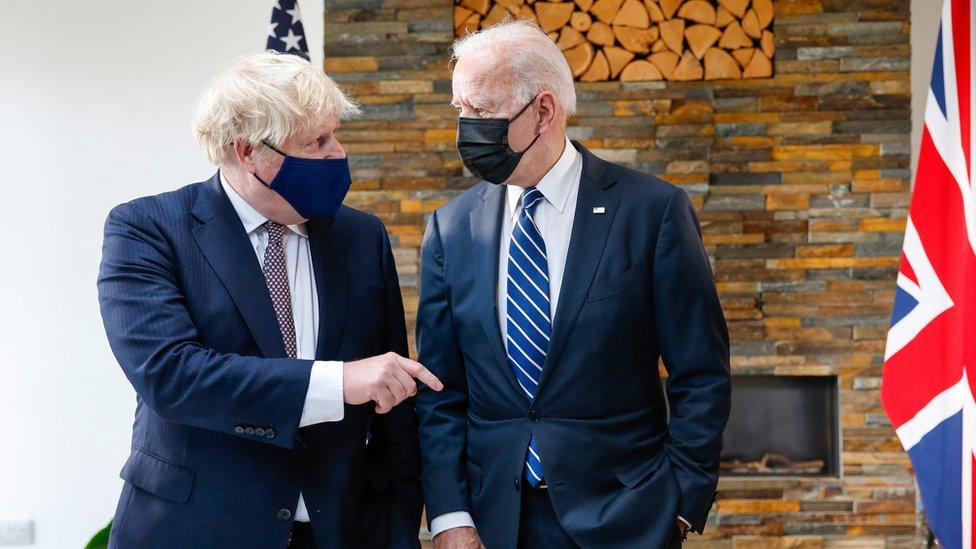
- Published10 June 2021